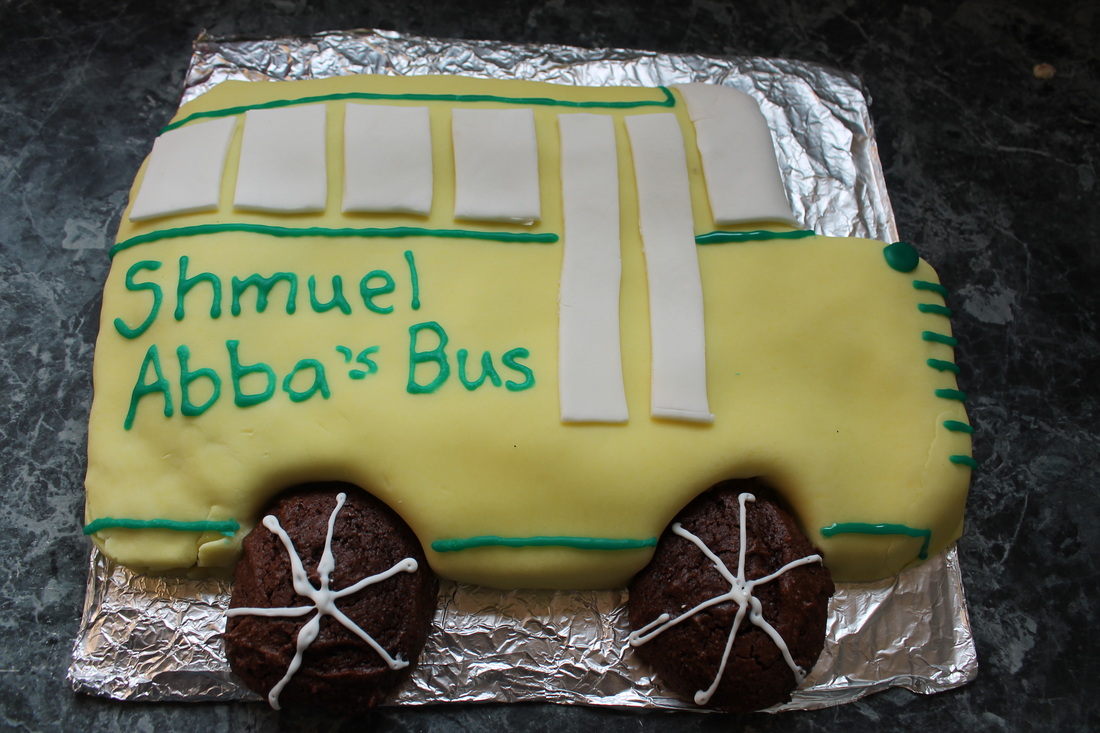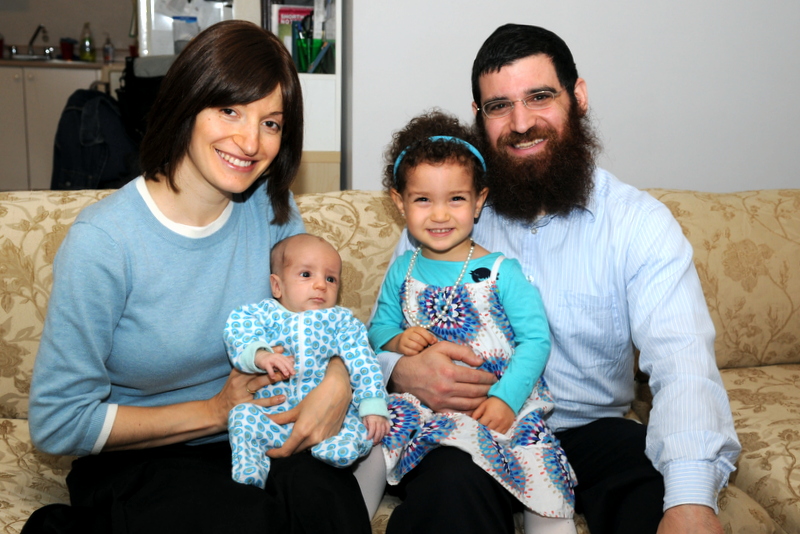"Ducky! Ducky! Ducky!" I hear my son call out as he races towards me down the hallway! No, it doesn't mean it's bath time. Rather, it means he found some lose change and wants to put it in the tze-ducky box. I can assure you, "ducky" will be heard down the block until the boy is given a tzedaka box to drop his coins and then shake with delight.
We spent the afternoon at the park and came prepared with a variety of buckets and shovels to use in the sand box. While my son is more on the shy side and takes time to warm up to new children, he sees a little boy his age sitting by himself about five feet away and promptly brings him one of his shovels. "Build! Build!" he encourages the boy.
We have a family tradition of having a Shabbos party each week. It involves talking about the parsha, saying the twelve pesukim, and singing some songs. At its conclusion, the children receive a special treat. As I was walking to the pantry, my son beat me there waiting in excitement. But when I give him his candy, he doesn't rush to unwrap and savour his bounty. "Bayla candy!" he insists, "Bayla candy!" Only once I give him a candy to bring to his big sister does he enjoy his.
Yet when I accidentally put the shoes he had outgrown on him, forgetting that I had just bought him a new pair a week earlier, I didn't hear a peep. When at breakfast I mistakenly poured him the wrong cereal instead of his favourite, he happily ate it anyway. Or when I couldn't find his basketball even though that was precisely the game he wanted to play, he was happy to ride his bike instead.
Two years ago, on the twenty seventh of Elul, our family experienced a tremendous miracle. Our son was born not breathing and without a heartbeat. That Rosh Hashanah my prayers were focused on one request. Just one. For my son to live. Thank G-d, my prayers were answered. Two year later he is a thriving active busy little boy. He enjoys watching airplanes, playing ball, helping me bake, and cleaning the house. One of his favourite activities is taking the bus. He especially loves observing all of the sights and sounds unique to this mode of transportation. It was this that inspired me to make him a birthday cake decorated in the shape of a bus.
At such a young age, Shmuel Abba seems to already have a keen understanding of what is most important in life. We know that one of greatest contributing factors to the destruction of the first and second Beis HaMikdash was sinas chinam (baseless hatred). We also know that the building of the third and everlasting Beis HaMikdash will come to fruition when ahavas yisrael (love for our fellow Jew) overflows amongst the Jewish people. Shmuel Abba watches out for others and is as concerned with their wellbeing as he is with his own.
Just as important as the bus ride itself, is knowing when to get on the bus and when to get off. In life we have to know where to put our energy and focus. When to make a big deal about something and when to let it go. When to make our voices heard and when to be okay with dropping the matter. After all, it is Hashem who is driving the bus, and no one likes a backseat driver.
Wishing you and yours a happy and sweet new year,
Ettie Shurack





 RSS Feed
RSS Feed
